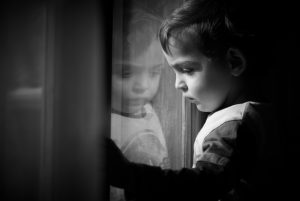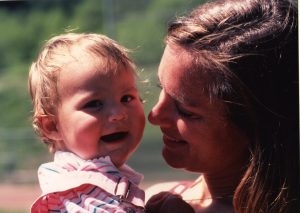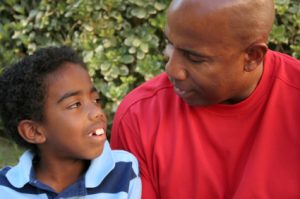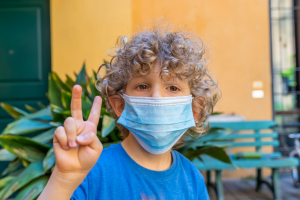A Horrific Event – What Can We Learn From the Sandy Hook Shooting
 Scary, disturbing, disgusting and virtually incomprehensible. These are the immediate feelings that overwhelm me while I watch the news unfold about the Newtown massacre. As the details come to light, reports of the shooter’s history of “Aspersers”, social isolation and engagement in violent video games can be very alarming. I know that there are many families who have children who share some, if not all, of these characteristics. It is important, however, to remember that the shooter, like all children, had his own unique social, environmental and neurological history. Whether or not he had “Aspergers,” autistic spectrum disorders are NOT associated with preplanned violence. However this story does bring to the forefront CRITICAL lessons in need of attention.
Scary, disturbing, disgusting and virtually incomprehensible. These are the immediate feelings that overwhelm me while I watch the news unfold about the Newtown massacre. As the details come to light, reports of the shooter’s history of “Aspersers”, social isolation and engagement in violent video games can be very alarming. I know that there are many families who have children who share some, if not all, of these characteristics. It is important, however, to remember that the shooter, like all children, had his own unique social, environmental and neurological history. Whether or not he had “Aspergers,” autistic spectrum disorders are NOT associated with preplanned violence. However this story does bring to the forefront CRITICAL lessons in need of attention.
First, children who have difficulty with social engagement need support! The issue of bullying has been on everyone’s mind and a focus of attention in our schools. We all want to care for children. However, what gets identified by a child as bullying, particularly those with social and/or emotional developmental challenges, sometimes is seen by others as the consequence of the child’s own odd or awkward behavior. It is also attributed to the child being just “too sensitive.” It is true that these children may bring teasing on themselves by misreading other’s behaviors as teasing. They may miss the intentions of others and perceive violations of rules as personal attacks rather than in the context of more subtle or nuanced communication, and then get upset. In these cases, there can be a tendency to rely on social consequences to teach: “When he behaves like that, other’s won’t like him. That will teach him.” Yes, these children can provoke and frustrate others, as they may not “get it.” They DON’T get it and they WON’T get it by leaving them alone. Isolating them and being mad at them amplifies their sense of being alone in the world. We as adults must honor when a child complains of being bullied, even when we don’t see it that way. Social isolation and rejection are deeply PAINFUL.
It is critical that we pay attention and turn toward these children in the social/school environment. The story of Sandy Hook should teach us about compassion. This is a reminder to each and every child and family that difference, when mocked, makes for pain, resentment and potentially self-harming behavior or acting out in violence. Finding compassion within us can make a profound difference in our children, our community and ourselves. My plea here is that we each pay attention to and examine what our children say about their school experience and peers. We must move from blaming, shaming, advising, ignoring or believing that consequences alone will teach. Instead, we need to learn about what drives behavior. Behavior has meaning. It is a communication. It is up to us as adults to discern what is being communicated. We must also help our children move away from rejecting others who they find different and instead move toward understanding and tolerance of differences between people.
Second, allowing our children with social challenges to find their only connection in the world via computer/video games is a risky path forward. These children need to be joined. They need to learn about the emotional world, theirs and others. They may feel anger, sadness and hurt, and not even be aware that they are experiencing these painful emotions. Instead their nameless angst may get played out in the virtual world. It is therefore important to shift them back from the isolation of playing alone to connection. This shift may have to start in the computer world, where a parent can help their child learn more about their emotional world when they play. Who are the characters? What is the history that makes them act that way? What might happen next? What made them want to act that way? Do you ever feel that way? I wonder if that character is scared? What did that character do that makes him a target? These may provide a door into the child’s video game world and a path into connection in the real world.
The question also needs to be asked if the child is addicted to video games. There is a longstanding correlation between media and violence. Experience wires neurology and if the only joy/reward one feels is aggression, how does that affect the individual’s social function? For those with aggressive tendencies (ie: hurt, pain, rejection, vulnerability that is turned into anger) violent video games can increase aggressiveness and decrease empathy. For those who don’t do well socially, it is essential that they get experiences with others that are rewarding and positive rather than spend their time in isolation with a video game. We know that video games are addicting. As a parent, we must start looking more closely at the role of video games in our children’s lives. Does my child threaten self-harm or aggression if you take them away? Can my child tolerate limits on play? Does my child sneak playing? Does thinking about games preoccupy his/her thoughts? How does my child handle his/her anger?
The Newtown massacre is a tragic event. We are all in shock and horror. What would make it more egregious is if this event didn’t teach us something about how to move forward and become better human beings. There are many among us in the community who struggle with social isolation and social awkwardness. Regardless of the specifics of the shooter at Sandy Hook, this event is a call to action to pay attention to our children who struggle socially. Name-calling, social isolation, rejection, and lack of compassion hurt all of us. It is a time to think more about our emotional lives and the human experience, especially at this time of year. Maybe this year Christmas can be about compassion, acceptance, tolerance and connection instead of the next electronic gadget under the tree.
Resources to Help in the Aftermath of School Shootings
Tags: child development, developmental challenges, mass shooting, sandy hook shooting, school shooting, video games








Leave a Reply